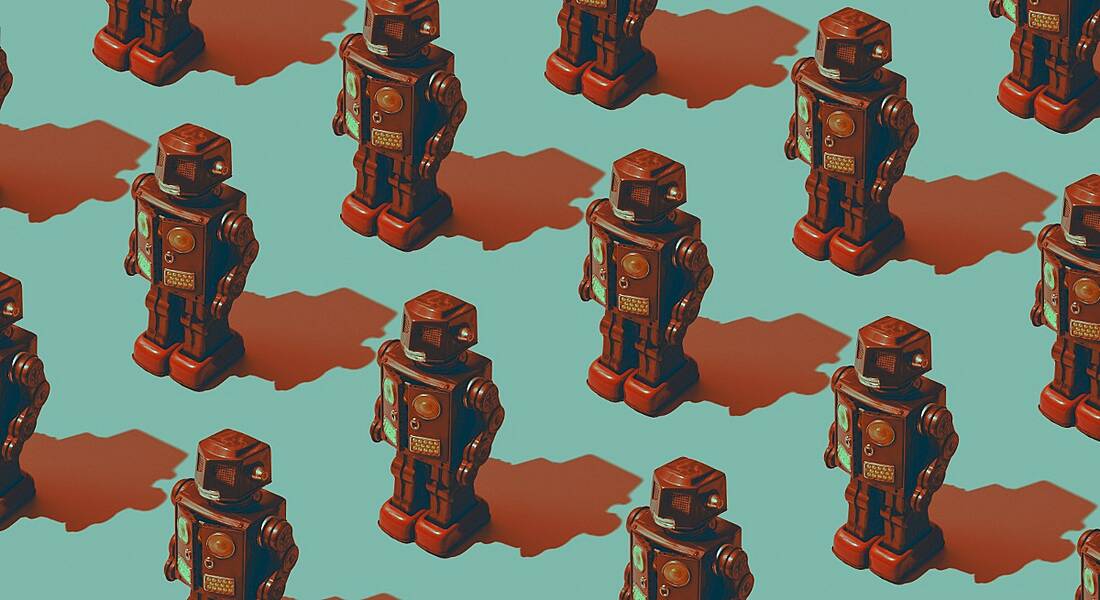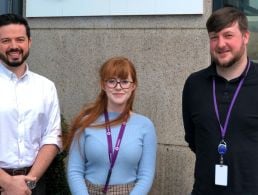What jobs will emerge in the year 2035? Will robots and humans work in harmony? A recent Citrix study sought to find out.
Conversations on the future of work have been taking place in the technology sector since its inception. And with the far-reaching impacts of Covid-19 to contend with, some companies are becoming more interested in predictions than ever before.
Multinational software firm Citrix, for example, recently completed a survey of more than 1,500 business leaders and employees in the US, the UK, Germany, France and the Netherlands. Before conducting the survey, Citrix partnered with consulting firms ,Oxford Analytica and Man Bites Dog, to look at “alternate visions” of the future of work in 2035. After the initial survey was completed in early 2020, 300 business leaders were asked about the impacts of the pandemic on their predictions.
Entitled Work 2035, the project left Citrix with the impression that employees of the future will be more engaged, more productive and will “fuel innovation and growth like never before”. The company said that a combination of flexible models and intelligent solutions will “remove the complexity and noise from work”.
Work 2035: Humans versus machines
Citrix reported on a number of trends it had come across while carrying out Work 2035. It is confident that robots will not replace humans, for example. Instead, they will make us “smarter and more efficient”.
In terms of leadership, however, 57pc of respondents believe that AI will make most business decisions, potentially eliminating the need for senior management teams. And 75pc think that most companies will have a “central AI department overseeing all areas of the business”. More than two-thirds (69pc) predict a human-machine partnership between the CEO and a chief of AI.
Participants were also asked about the other new roles they foresee emerging in the future. One of the top jobs named was a robot or AI trainer, predicted by 82pc of leaders and 44pc of employees. Others included virtual-reality managers (79pc of leaders and 36pc of employees), advanced data scientists (76pc of leaders and 35pc of employees), privacy and trust managers (68pc of leaders and 30pc of employees) and design thinkers (56pc of leaders and 27pc of employees).
Speaking to Siliconrepublic.com about Work 2035, executive VP and chief people officer at Citrix, Donna Kimmel, said: “In 15 years, you may be applying for a job that doesn’t even exist today. And that job could be really interesting.”

Donna Kimmel. Image: Citrix
The future of flexibility
The 2035 workplace will also be more flexible because of technology, according to the survey’s participants. More than half of employees (60pc) believe that permanent staff will become rare in the future. Of the leaders, 80pc said that tech platforms will give “instant access to highly specialised, on-demand talent”.
Kimmel said: “I was surprised that employees seem to undervalue their worth to companies. While 60pc of employees polled think that permanent workers will be rare by 2035, only 19pc of business leaders believe that this will be the case.
“Companies will always need full-time employees. And the camaraderie and trust of an established team supports efficiency and productivity. When you infuse these teams with new perspectives and different experiences, you can fuel innovation and business growth.
“So what I think you will see in the future is a mix of full-time employees working alongside contract and gig workers brought in to fill specialised roles that technology will create. As long as companies are creating solutions for humans, they will benefit from having them created by humans.”
Predictions for productivity
Productivity could also benefit from workplace technology. Of the 1,500 people surveyed, 77pc said that in 15 years AI will “significantly speed up the decision-making process”, making workplaces more productive. More than half (51pc) believe technology will make workers at least twice as productive by 2035.
One of the biggest technological advances to come, Citrix said, is the dawn of “AI-ngels”. These will be AI-driven digital assistants that will draw on workplace and personal data to help staff prioritise tasks and maintain their wellbeing.
For example, AI-ngels will schedule meetings to take place at the most effective times according to blood-sugar levels of employees and other factors, according to Citrix. Kimmel said: “The idea that technology could alert me to the effect my blood-sugar level may be having on my productivity or to tell me that my heart rate suggests I may want to reschedule an upcoming meeting when I am less stressed is intriguing. And the implications it could have in terms of optimising how we work could be significant.”
Other workplace technology solutions participants mentioned included AI nudges, wearable tech, augmented-reality glasses, neuro-linked tech for controlling devices, and exoskeletons to enhance performance-related tasks.
“I think people see the potential for technology to make us smarter and more efficient,” Kimmel added. “There’s a lot of noise at work today stemming from clunky technology that, while designed to simplify work, has only made it more complex. With the right technology, companies can remove the distractions that get in the way of our individual progress and enable us to focus and do what we do best.”
More meaningful work
Both leaders and employees said that by 2035, technology will help automate “low-value tasks”. This will give workers time to focus on “the meaningful work”, but also to upskill and unearth new opportunities.
And this is expected to accelerate business growth, Citrix said, as 90pc of business leaders believe that investment in AI technology will be the biggest driver of expansion in their company by 2035. This could be particularly beneficial for smaller organisations as 63pc of participants said they foresee technology “levelling the playing field” by 2035.
Commenting on this potential, Kimmel said: “Look back at history. Over the past 100 years, technology has transformed entire industries and opened the door to amazing innovations that have enhanced our lives. It has given us things we didn’t necessarily know we needed, but now can’t imagine living without. It has made us more connected and informed and given us a platform to do good. And this will continue.”




